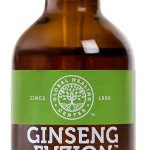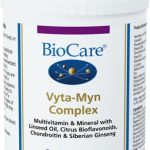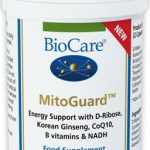Would you believe it if you were told that there’s a plant in existence whose properties are so beneficial for the human body it can help with everything from maintaining good brain function to preventing inflammation; from lowering blood-sugar levels to treating the symptoms of menopause to combating erectile dysfunction. Perhaps not, right? But you ought to because ginseng can do all this – and more.
Having been a favourite herbal remedy throughout the many civilisations of Asia and North America for thousands of years, its fame has spread far and wide in the last century and is now a popular supplement in every corner of the earth. Six million people in the United States alone take ginseng on a regular basis – but just what is it they’re consuming?
Ginseng – the lowdown
As noted, the ginseng plant – belonging to the genus Panax of the Araliaceae flora family – occurs in Asia and the Americas and, in total, there are 11 different species. Perhaps the most reputed and commonly used species as supplement-based extracts are American ginseng (Panax quinquefolius) and Korean/ Asian ginseng (Panax ginseng). Yet, for all its renown, the plant is yet to meet universal approval across the entire medical community; although evidence continues to mount – not least first-hand proof among ordinary members of the public – of its profoundly beneficial attributes. In which case then, let’s take a closer look at some of the extract’s major health-giving properties.
Positive mood and stress reduction
One of ginseng’s most lauded benefits is its effect on mental outlook and its relaxing properties. When it comes to mood, a UK-based study found that, over the course of an eight-day period, just 200 milligrams of ginseng each day slowed a fall in mood among the study’s participants1, while Indian-based research discovered that Panax ginseng, when consumed by rats, could be used to treat stress-induced illness owing to possessing ‘significant’ anti-stress properties2.
Anti-inflammatory benefits
As you’re probably aware, any chemical or supplement ingredient that possesses anti-inflammatory properties is capable of aiding in the body’s efforts to reduce swelling (in other words, inflammation). How does ginseng excel here? Well, a 2011 study conducted in China (again, on rats) found that Korean red ginseng not only reduced inflammation in their bodies – which, if left untreated, could contribute enormously to the development of many diseases – but also tackled inflammatory damage to their brains3.
Cognitive performance
Let’s be honest; who among us couldn’t do with feeling a little sharper of mind; a little faster of thought; a little more intelligent? Well, evidence suggests that ginseng ably stimulates brain cells, thus helping to improve concentration and cognitive performance. A study showed that the consumption of Panax ginseng root for 12 weeks among people suffering with Alzheimer’s disease impressively improved their mental capabilities – indeed, this trend of improvement continued for three months4. Tantalisingly then, these results suggest ginseng may even have the capacity to be considered a treatment for Alzheimer’s.
Combating sexual dysfunction
One of the most widely considered benefits of ginseng is that it can help men recover a fall in sexual libido. Indeed, a 2008 study using Korean red ginseng appeared to bear out this very fact; out of 28 reviewed but randomised clinical studies of erectile dysfunction, all of them reported positive effects when it came to the consumption of ginseng coinciding with an improvement in sexual arousal5. Furthermore, other research discovered that ginseng works effectively in facilitating penile erections thanks to helping dilate blood vessels and thus relaxing the penis’s erectile tissue6, while the plant’s chemical make-up also works to improve sexual desire directly in the brain by targeting the central nervous system and thus altering activity in the body’s biggest and most complex organ to boost hormonal activity.
Targeting menopause symptoms
Away from what ginseng can do for men, it seems it can also be of significant use to women – or, more specifically, women experiencing the uncomfortable, unflattering and sometimes downright difficult symptoms of menopause. A certain amount of evidence suggests that ginseng can aid them through such menopausal experiences as mood swings, nights sweats and hot flushes during the day, irritability, decreased sex drive (again), weight gain and insomnia – three different clinical trials have suggested that Korean red ginseng can aid in increasing sexual arousal, boost well-being and general health and thus reduce depressive thoughts and behaviour among menopausal individuals7.
Controlling blood-sugar levels
For those suffering from type 2 diabetes, it also appears ginseng may be of major benefit. This is because it can effectively lower blood-sugar levels, so a recent UK-based study found – taking Panax ginseng may result in reduced blood glucose levels just a single hour after glucose consumption, thus underlining the fact ginseng is efficient when it comes to maintaining glucoregulation8. Moreover, ginseng also appears to aid type 2 diabetes sufferers when it comes to boosting their insulin sensitivity (something their bodies are chiefly and dangerously lacking in because of the condition)9.
Boosting immunity
Finally, as if all that wasn’t enough, ginseng is also a dab hand at increasing the efficacy of the human body’s immune system, thus aiding it in its constant fight to keep at bay infection, illness and potential disease. This – rather like its use for driving up sexual libido – isn’t much of a surprise, as ginseng extracts have been used for centuries as an immune homeostasis. Nonetheless, recent research seems to prove it – pointing to the fact that ginseng is capable of regulating every kind of immune cell (including T cells, B cells, dendritic cells, macrophages and the elaborately named natural killer cells). Specific evidence can be gleaned from studies conducted on mice that demonstrated the plant’s ingredients worked to reduce the amount of bacteria present in the animals’ blood, kidneys and spleens, thus helping to safeguard them from septic death owing to inflammation10.
Ginseng supplements
So, should you be convinced of all the beneficial effects for the body and mind ginseng provides (and, as said, those outlined above are far from all of them), where you might be wondering can you realistically get your hands on this most positively potent plant extract? Your best bet is in the form of natural supplementation. By all means visit our website’s ‘Ginseng’ section to see all such products we stock here at The Finchley Clinic – examples of which include:
Ginseng Fuzion – a ground-breaking ginseng supplement that’s a blend of six different types of powerful adaptogens for maximum benefits.
Vyta-Myn Complex – a specialist multivitamin-mineral blend, comprising boosted Vitamin B5 and Vitamin A, in addition to Siberian ginseng; designed to provide the body with much-needed, considerable nutritional support.
Mitoguard – provides a combination of Korean Ginseng, D-Ribose, CoQ10, B Vitamins, NADH and antioxidants; designed to maintain mitochondria function and support energy balance.
References:
- Reay J. L., Scholey A. B. and Kennedy D. O. ‘Panax ginseng (G115) improves aspects of working memory performance and subjective ratings of calmness in healthy young adults’. Hum Psychopharmacol. 2010 Aug; 25 (6): 462-71. doi: 10.1002/hup.1138.
- Rai D., Bhatia G., Sen T. and Palit G. ‘Anti-stress effects of Ginkgo biloba and Panax ginseng: a comparative study’. J Pharmacol Sci. 2003 Dec; 93 (4): 458-64.
- Lee J. S., Choi H. S., Kang S. W., Chung J. H., Park H. K., Ban J. Y., Kwon O. Y., Hong H. P. and Ko Y. G. ‘Therapeutic effect of Korean red ginseng on inflammatory cytokines in rats with focal cerebral ischemia/reperfusion injury’. Am J Chin Med. 2011; 39 (1): 83-94.
- Lee S. T., Chu K., Sim J. Y., Heo J. H. and Kim M. ‘Panax ginseng enhances cognitive performance in Alzheimer disease’. Alzheimer Dis Assoc Disord. 2008 Jul-Sep; 22 (3): 222-6. doi: 10.1097/WAD.0b013e31816c92e6.
- Jang D. J., Myeong S. L., Shin B.-C., Lee Y.-C. and Ernst E. ‘Red ginseng for treating erectile dysfunction: a systematic review’. Br J Clin Pharmacol. 2008 Oct; 66 (4): 444–450. 2008 Aug. doi: 10.1111/j.1365-2125.2008.03236.x.
- Murphy L. L. and Lee T. J. ‘Ginseng, sex behavior, and nitric oxide’. Ann N Y Acad Sci. 2002 May; 962: 372-7.
- Kim H. S., Yoon Y. J., Lee J. M., Lee C. H., Jang J. B., Lee K. S. and Cho J. H. ‘A clinical study on the effect of red ginseng for postmenopausal hot flushes’. J Orient Obstet Gynecol. 2009; 22: 132–139.
- Reay J. L., Kennedy D. O. and Scholey A. B. ‘Effects of Panax ginseng, consumed with and without glucose, on blood glucose levels and cognitive performance during sustained “mentally demanding” tasks’. J Psychopharmacol. 2006 Nov; 20 (6): 771-81. Epub 2006 Jan 9.
- Gao Y., Yang M.-F., Su Y.-P., Jiang H.-M., You X.-Y., Yang Y.-J. and Zhang H.-L. ‘Ginsenoside re-reduces insulin resistance through activation of PPAR-γ pathway and inhibition of TNF-α production’. Journal of Ethnopharmacology. Vol 147; Issue 2; 2013 May; pp 509-516. https://doi.org/10.1016/j.jep.2013.03.057.
- Kang S. and Min H. ‘Ginseng, the “Immunity Boost”: The Effects of Panax ginseng on Immune System’. J Ginseng Res. 2012 Oct; 36 (4): 354–368. doi: 10.5142/jgr.2012.36.4.354.



